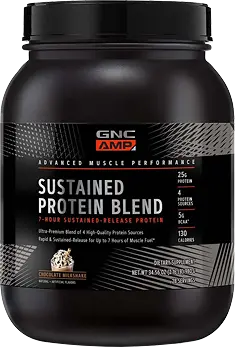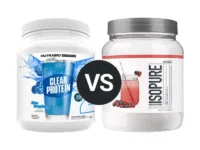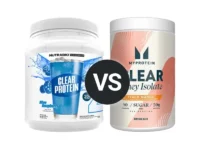Knowledge BaseYou're Questions Answered
Can protein powder cause dehydration?
Yes, consuming protein powder can potentially lead to dehydration if not accompanied by adequate fluid intake. Protein powders, particularly those derived from dairy such as whey and casein, require sufficient water to metabolize effectively. This is because the body needs more water to process and eliminate the byproducts of protein metabolism, such as urea and ammonia1.
When protein is metabolized, it generates nitrogen-containing compounds that the kidneys must filter from the blood and excrete in urine. This process demands a significant amount of water, and without proper hydration, increased protein intake can lead to higher concentration of urine, which in turn can strain the kidneys and lead to dehydration2.
To prevent dehydration while using protein powders, it is crucial to increase your water intake. A general guideline is to drink an additional 8 ounces of water for every 25 grams of protein powder you consume. This is in addition to the daily recommended water intake, which is about 125 ounces (3.7 liters) for men and 91 ounces (2.7 liters) for women3. Additionally, monitoring the color of your urine can be a practical way to ensure adequate hydration; pale yellow urine typically indicates proper hydration, whereas darker urine can be a sign of dehydration4.
It is also advisable to consider the type of protein powder you are using. Some protein powders may contain added ingredients that can increase the body’s need for water. If you are consuming a high amount of protein through supplements, it is especially important to balance this with a proportionate increase in fluid intake.
- Martin, W. F., Armstrong, L. E., & Rodriguez, N. R. (2005). Dietary protein intake and renal function. Nutrition & Metabolism, 2, 25.
- Popkin, B. M., D'Anci, K. E., & Rosenberg, I. H. (2010). Water, hydration and health. Nutrition Reviews, 68(8), 439-458.
- Institute of Medicine (US) Panel on Dietary Reference Intakes for Electrolytes and Water. (2004). Dietary Reference Intakes for Water, Potassium, Sodium, Chloride, and Sulfate. Washington (DC): National Academies Press (US).
- Armstrong, L. E. (2007). Assessing hydration status: The elusive gold standard. Journal of the American College of Nutrition, 26(5), 575S-584S.
Related Questions
Related Reviews

Your Answer
We are a participant in the Amazon Services LLC Associates Program, an affiliate advertising program designed to provide a means for us to earn fees by linking to Amazon.com and affiliated sites.



